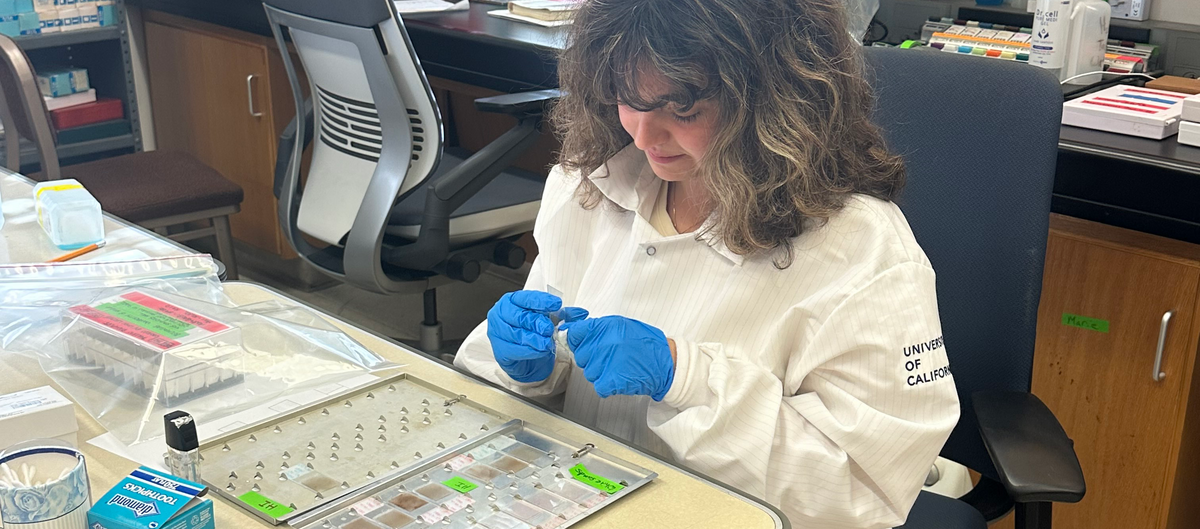A large percentage of Geography majors engage in research before they graduate, some on faculty-initiated research projects and others on projects initiated by themselves. Conducting research comes with many rewards, from skill development to making an impact. Whether you want to start building your resume or you want to do something meaningful with your free time, undergraduate students have countless options to conduct research while at UC Berkeley.

When Should I Start Doing Research?
There really is no right answer to this question. Students can start research any time they wish, as long as they have a faculty sponsor. We recommend that students take on research after they have gotten used to UC Berkeley. For many, this is around their 3rd or 4th years. We advise transfer students to wait until their second semester to begin research.
Finding a research position
- The Office of Undergraduate Research & Scholarships offers multiple programs that connect undergraduates with research opportunities. The most popular of these programs is URAP (Undergraduate Research Apprentice Program), where students can apply for research projects that are actively looking for undergraduate apprentices.
- The Career Engagement Center provides workshops and seminars on finding internships and other experiential learning opportunities.
- Contact a faculty member directly who is doing work related to your area of interest. Check out the Faculty directory to learn more about each professor's research areas, interests, and current projects.
- Geography students work in various departments across campus, including Environmental Science, Political Economies, and Conservation and Resource Studies, just to name a few. Additionally, it is possible to do research off campus if you wish—Geography students can earn credit for research through an internship as long as a Geography faculty member is willing to sponsor them.
Finding funding for your research
The Office of Undergraduate Research and Scholarships has information scholarships, grants, and research programs. Examples of research funding that Geography undergraduates are often awarded include:
- Summer Undergraduate Research Fellowships, known as “SURF”, which provides $5,000 stipends to students to carry out in-depth research over the summer. Students should start attending info sessions and developing their application the January before the program begins.
- The Haas Scholars Program, which funds 20 students for up to $13,800 to carry out a capstone project in the summer preceding and during their final year on campus. Applications are accepted annually in early February, so plan early!
- The Judith Lee Stronach Baccalaureate Prize, which awards up to $25,000 for projects led by recent Cal graduates that serve the public good and heighten awareness of social issues. Interested students are highly encouraged to make an appointment with the program manager to discuss their project ideas.
Tips for approaching faculty about research
- Research the faculty member beforehand.
- If their research is interesting to you, think about why.
- Read the most recent publications about their research interests.
- Become well informed regarding recent and current research in the department, enabling you to discuss why you would like to work on the faculty member's research and why you think you (and your specific interests) would be a good fit.
- Contact the faculty member via email first to set up an appointment. Mention in the email that you are interested in pursuing research and why you think their research is interesting.
- Remember, these conversations are great ways to better understand what research questions faculty are actively working on, what role undergrads play in their research, and what they look for in research apprentices. If they think there's a better fit out there, they can even make referrals to other faculty members. It also gives you a chance to decide if this faculty member is someone you want to work with.
- During your meeting, highlight the qualities most faculty would like to see:
- Dedication and reliability
- Passion for the research topic(s)
- Analytical thinking skills
- Ability to think outside the box
Unit credit for research
There are many ways to earn units for research. Unit credit is earned on the basis of 1 unit per 3 hours of research per week. (E.g., 6-8 hours of research time per week would earn 2 units for the semester, while 9-11 hours would earn 3 units). A student can accumulate up to a maximum of 16 units of Independent Study towards the bachelor's degree, and enrollment in Independent Study is restricted to 4 units in a given semester. Check with the College of Letters & Science for further restrictions.
Options for earning unit credit for research
| Course | Units | Eligibility | Requires Original Research? | Grading Option |
|---|---|---|---|---|
| GEOG 197: Internship | Variable (1-4) | Any student with faculty approval | Not Always | Pass/No Pass |
| GEOG 199: Independent Study | Variable (1-4) | Any student with faculty approval | Not Always | Pass/No Pass |
| GEOG H195A/B: Honors Thesis | Variable (1-4) | GEOG majors with a 3.5 minimum overall and major GPA | Yes | Pass/No Pass or Letter Grade |
Procedure for earning credit
- Contact an Geography faculty member to sponsor you (see steps above).
- Complete a request for research units. Requests are due the Friday of the third week of instruction. Students must already have communicated with their faculty sponsor before submitting a request.
- Once approved, the Curriculum Manager will enroll you in the course.
